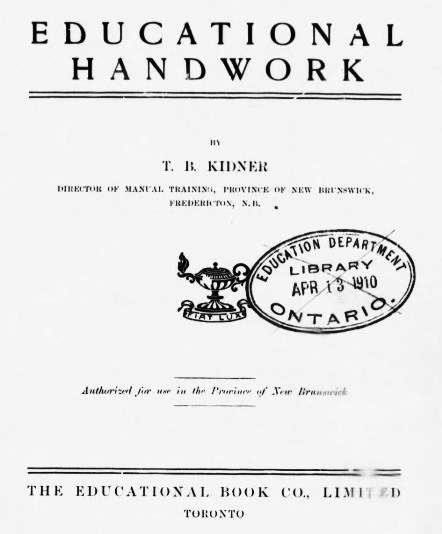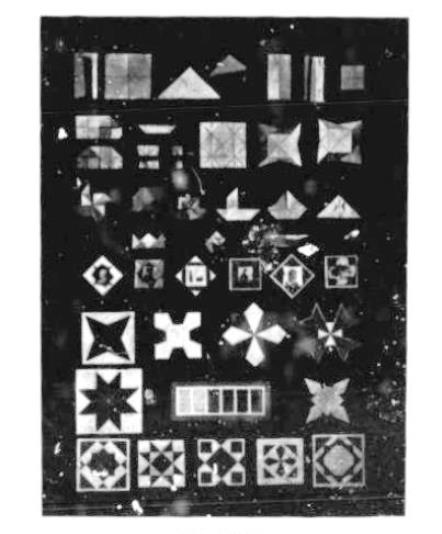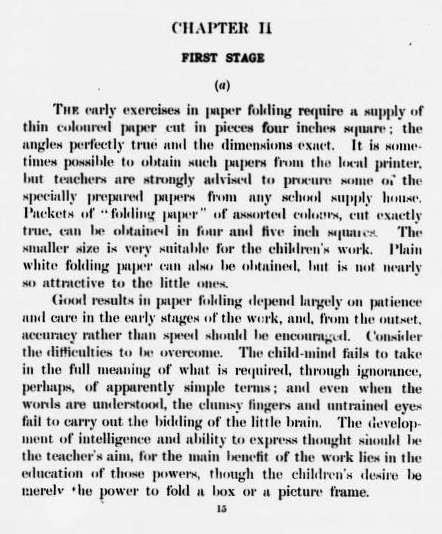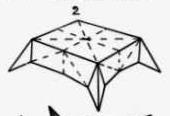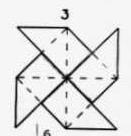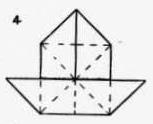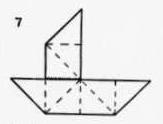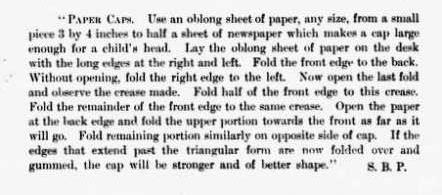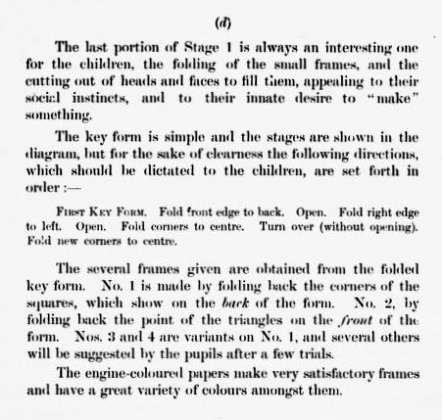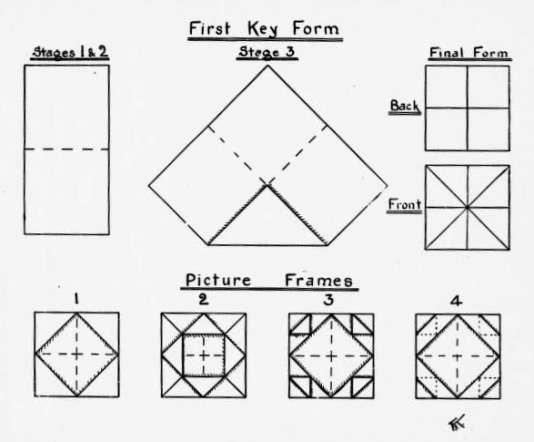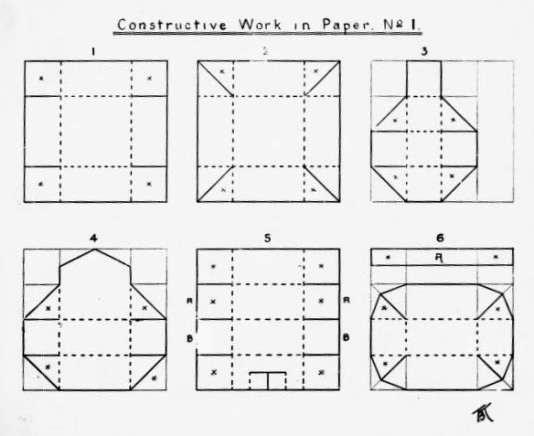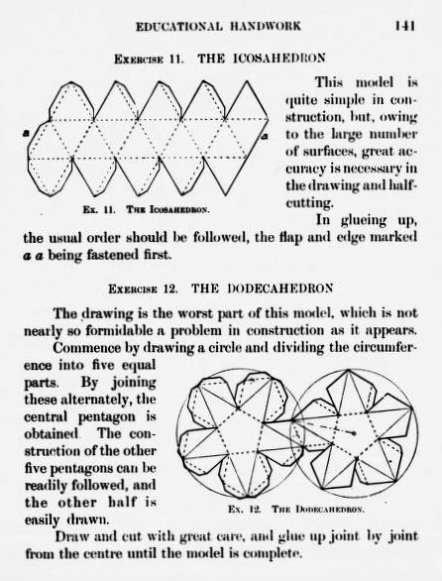| The Public Paperfolding History Project
Last updated 27/2/2024 x |
|||||||
| Educational Handwork by T B Kidner, 1910 | |||||||
| 'Educational
Handwork' by T B Kidner was published by The Educational
Book Company Limited in Toronto in 1910. It includes
sections on the use of paperfolding as handwork in the
first and second stages of elementary school. From stage
three onwards paperfolding is replaced by cardboard
modelling which ultimately leads to the modelling of
polyhedra from cardboard templates. A full copy of the work can be found here. **********
********** Analysis First stage Forms of Life
No's 1 to 7 should be considered to be Simple Forms of Life 1. Book or Screen
********** 2. Window
********** 3. Tent
********** 4. Snowplough
********** 5. Table
********** 6. Closet with Two Doors
********** 7. Footstool
********** 8. Barn
********** 9. House (an unusual version with one dormer roof folded backwards)
********** 10. Shelf (made from the normal version of the House)
********** 11. A Garden Seat- The Sofa
********** 12. A Chair (made from a 4x3 rectangle) - The Chair
********** Second Stage Forms of Life No 1 can be considered a Simple Fold of Life 1. Cake or Candy Basket (with the layers of the corners pasted together)
********** 2. Tablecloth - The Tablecloth
********** 3. Windmill or Pinwheel - The Windmill
********** 4. Houseboat or Noah's Ark - The Ship
********** 5. Cup and Saucer - The Cup and Saucer
********** 6. Double Boat - The Double Boat
********** 7. Sail Boat - The Boat with Sail
********** 8. Crown
********** 9. Work-Basket - The Saltcellar
********** 10. Admiral's Hat - The Soldier's Cap
********** There is also a description of how to fold a Paper Cap (Newspaper Hat), attributed to S.B.P, who is Mrs S B Patterson of the Kindergarten Training School at Truro, NS.
********** There is also a reference to paper strips being used to make Paper Chains and Cat-Stairs (Witch's Ladders)
********** Forms of Beauty (referred to in this work as Frames)
********** Mosaic Pieces The work also explains how to make mosaic pieces suitable for arranging into stars by either folding alone or folding and cutting.
********** Third Stage Constructive Work - Cardboard Modelling
********** |
|||||||
